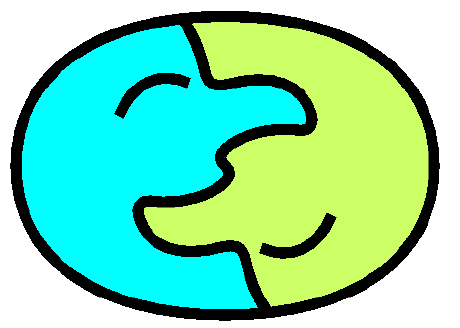Who am I
So there's a lever you can put under the rocks of 'I am this' and 'I am that' and discover with the lever what is important. The lever is a question: how does it feel?
First of course the basic linguistics of it: "this" refers to the proximal whereas "that" refers to the distal. "This" is something here whereas "that" is something there.
So: how do they feel?
"I am this" has a definite feeling; it's the feeling of whatever "this" is, and you know it because this is in your hand; it's next to you it's here with you it's close, proximal, known. And as you know how things feel based on what they are, you know the feeling that you have with this by you. And if you think you ARE this then Bam you have the feeling of being this. Worse yet you can't get away from that feeling once you believe that you are this, whatever this is. Every role or attribute you can imagine implies not just that role or attribute but also is tied to the feeling that that role and attribute has. All the world of emotional duality applies its characteristics to the situation of you having that role or that attribute. To the exact degree that you believe that the role or attribute applies to you, to that very degree you in turn are unable to escape from emotional implications of having that identity. If you hold this as yourself then you imprison yourself with the feelings associated with this. The intellectual event of identification, thinking this is me, is matched by the emotional event of imprisonment within the feeling that you associate with that identification, the feeling that this sucks or rocks or whatever is in your emotional map for this. Identification equals emotional imprisonment.
Does all this apply to "I am that"? I guess it depends on what "that" is, but the basic this/that contrast is between something that you have a clear idea about because you do have your hands on it, you know what it is, it's this, versus something that you don't know quite as much what it is because it's far away from you, you don't really hold it in your hands or control it or even understand it.
Obviously this is a generalization rather than perfect analysis because you can refer to an orange across the room as that orange and know perfectly well what it is. But generally the feeling difference between this and that is this is here you got it and that is like a bird in the bush, you don't have it.
So when you say that "I am that" you're saying that you don't know what you are. In short you disidentify. You identify with the unspecified, with the unknown, with the remote, the distal, in short you don't identify. It's like identifying with nothing or with the infinite or with God or with some principle free of emotionally specific attributes or in short you use the claws of your identification mechanism in such a way that they grab onto nothing and therefore the emotional imprisonment that comes with grabbing onto something evaporates.
You know I think this is all accurate but it's rather head based and intellectual and what matters more than building your own mental model of my mental model of your emotional system is that you find that infinite being, that universal love and wisdom, right now, that is immediate to you. Love with all your heart. Seek detachment from the particulars or seek the universality within the particulars. Find your own inner surrender that liberates your own heart to feel the great significance within.
Let me add something to this. You know each of us is plural. We have our inner Maslow hierarchy of needs and our emotional integration and balancing processes. And we have our intellect and perception and physiological inner coordination of hormones and physiology etc. and all our chakras or whatever you take as your model of survival sexuality sociability independence connection etcetera. And we have an emotional system which is capable of the most intense compelling and incredible experiences of bliss and significance and delight and connection and all the feelings that this life is here to experience, positive and negative and neutral. Well it is that emotional system which is what's important. It is the most important thing by definition because what is important is what's emotionally important. Things that are not emotionally important are not actually important. The whole experience of importance itself is an emotional experience. So the domain of significance is the emotional domain and the place of the purpose of everything is within the emotional space.
That's what I'm saying: your purpose is a self actualized emotional world. If your emotional world is not self-actualized, if it is imprisoned in some role some attribute, some story, if it is locked into any specific condition, then you are not fulfilling the purpose of your life.
I'm saying it's not just about having a certain feeling after getting to the end of a certain road and feeling a sense of accomplishment or even of failure. That's a feeling that is also in a prison. I'm saying emotional self actualization is the feeling of freedom, watching the flow just go by with the bliss of time itself, an uncontrolled spontaneous unfolding which in a blink can go from exaltation to amusement to serenity. Our goal is to have that flexibility, and for our emotional systems to be free, unconstrained, not in a box. Because if not then is your emotional subsystem really doing what it can?
We all know our own state, satisfaction is far from us, but it doesn't need to be. The abandonment of all false identities brings liberation. What am I, then, really?
I am that.
